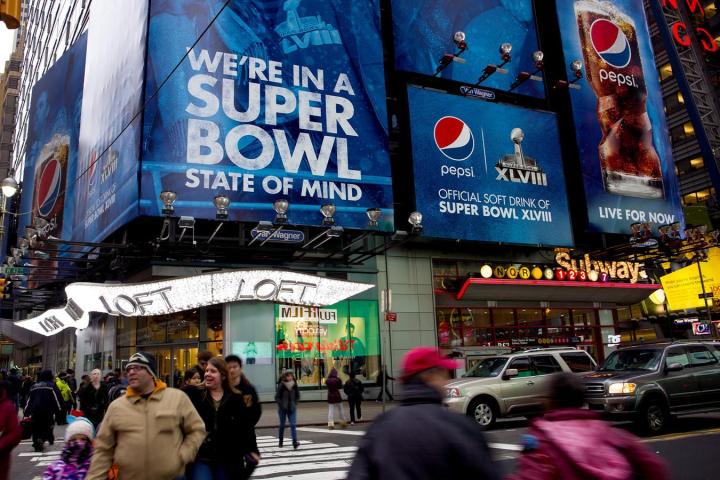
Detailed by the New York Times this week, both the National Football League and Major League Baseball are making a big push into targeted mobile advertisements based on location. This weekend, anyone walking around Times Square or Metlife Stadium will receive text notifications related to Super Bowl merchandise or directions to specific locations in the user’s vicinity. This is a fairly new technology for smartphone owners, but it’s currently active on all Apple devices that are currently running iOS 7. According to Apple’s developer page, approximately 80 percent of iPhone and iPad owners have upgraded to iOS 7.
Of course, Apple’s iBeacon technology doesn’t require that the user download an application prior to receiving notifications. Prior to this point, users that downloaded a store’s application would need to authorize notifications. Stores have been providing incentive for authorization such as exclusive discounts and deals when the user walks through the front door. However, this allows gives the store the ability to advertise specific products directly to the customer based off location in the store. For instance, a customer in Macy’s may receive a deal for a panini grill when wandering through the housewares section.

The NFL isn’t alone in testing out this new technology. The MLB will be installing a couple thousand of these transmitters within two thirds of the stadiums prior to Opening Day. That includes stadiums that host teams such as the Boston Red Sox, Milwaukee Brewers, San Diego Padres, L.A. Dodgers, and San Francisco Giants. These beacons will work in conjunction with the MLB’s smartphone app called At The Ballpark.
Conceptually, this will allow teams to provide directions to seats and concessions based off the user’s current location in the ballpark. It could provide further benefit to consumers by offering directions to the shortest lines, both when entering the ballpark and attempting to purchase a beer and a hot dog. It will also tie into rewards programs that include discounts on items sold within the ballpark, but that’s dependent on the promotional team that handles the marketing for each stadium.

Hypothetically, the application could provide complete access to all monetary transactions within the ballpark including purchasing tickets. It could also attempt to entice the user to upgrade their seating situation during the game for a small fee. For a regular attendee, the ballpark’s management could use data tracking over several games to determine the best time to send a notification about a deal on beer, assuming the timing of all visits to a concession stand during previous games were taken into account.
Of course, privacy advocates aren’t thrilled about location tracking within retail stores or ballparks. The majority of people that agree to these types of notifications don’t necessarily read the terms that reference how the tracking data will be used in the future. That being said, NFL representatives made it clear that the beacon technology that’s firing out the Super Bowl updates this weekend in New York and New Jersey will not connect that information to personal data related to purchases or location.


